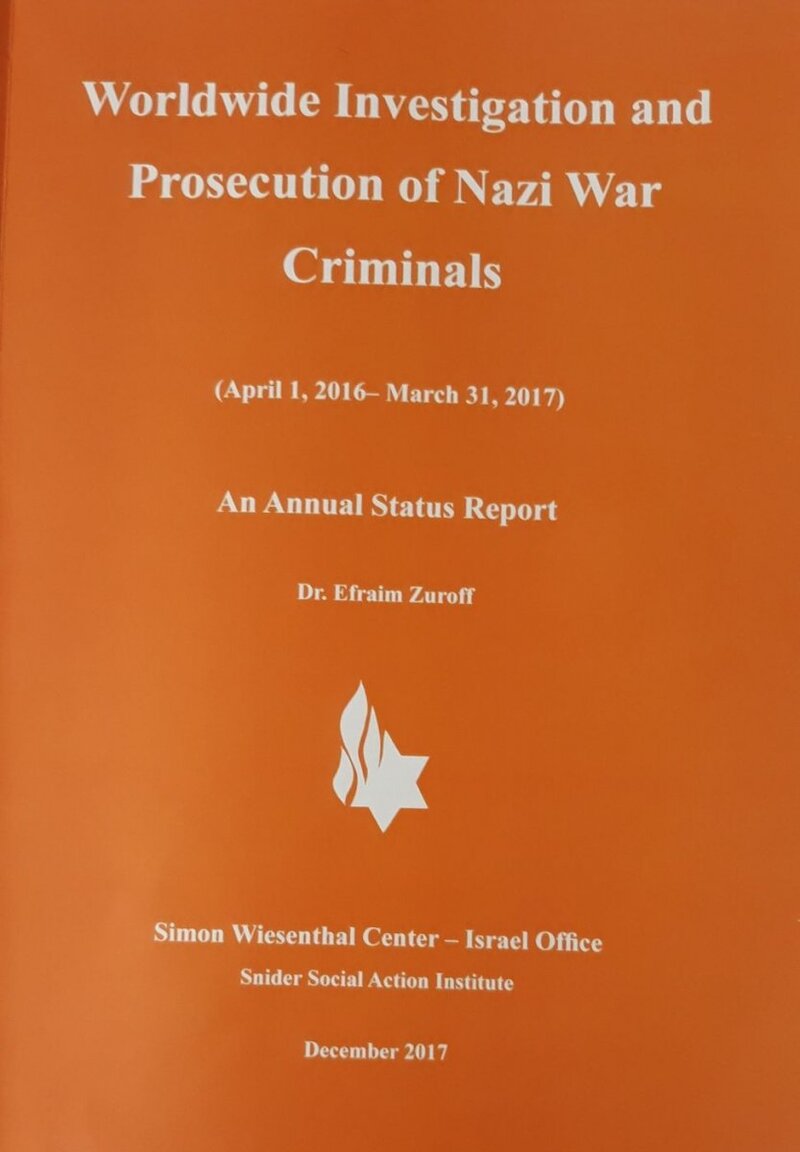In this year's report prepared by the head of the Israel Office of the Simon Wiesenthal Center, Poland, alongside Italy, has received category “B” on the investigation and prosecution report card. This category is granted to countries which have taken the necessary measures to enable the proper investigation and prosecution of Nazi war criminals and have registered at least one conviction and/or filed one indictment during the period under review and/or actively assisted investigations in other countries.
Established in 1977, the Simon Wiesenthal Center is a non-governmental organization operating at the United Nations, Council of Europe and UNESCO, promoting human rights and preserving the memory of the Holocaust. The institution deals with problems related to racism, anti-Semitism, genocide or terrorism. The Center, which is one of the largest international Jewish organizations defending human rights, was named after Simon Wiesenthal - a Jewish activist, a famous “hunter”of Nazi war criminals, an engineer and architect who contributed to the capturing of, among others, Adolf Eichmann.
Since 2001, the Director of the Office of the Simon Wiesenthal Center in Israel - Efraim Zuroff, - an Israeli historian and coordinator of the search for Nazi criminals around the world, has been publishing a report containing a list of the most wanted Nazi criminals.
The Wiesenthal Center report on Worldwide Investigation and Prosecution of Nazi War criminals in particular countries is also published annually. The Investigative Division of the Institute of National Remembrance – the Chief Commission for the Prosecution of Crimes against the Polish Nation-annually sends a detailed report to the Center, presenting its activities in this area.
Grades ranging from A ( the highest, given to countries which have adopted a proactive stance on the issue, have taken all reasonable measures to identify the potential suspected Nazi war criminals in the country in order to maximize investigation and prosecution and/or have achieved notable results during the period under review) to F (the lowest, given to countries which did not respond to the questionnaire, but clearly did not take any action whatsoever to investigate suspected Nazi war criminals during the period under review) were granted in order to reflect the Wiesenthal Center’s evaluation of the efforts and results achieved by various countries.
Countries that were assessed by the Center include: the United States, Lithuania, Canada, Poland, Germany, Great Britain, Croatia, Austria, Latvia, the Netherlands, Estonia, Costa Rica, Denmark, Slovakia, Belgium, Italy, Romania, Australia, Hungary, Slovenia, Spain , Serbia, France, Argentina, Brazil and Chile.
